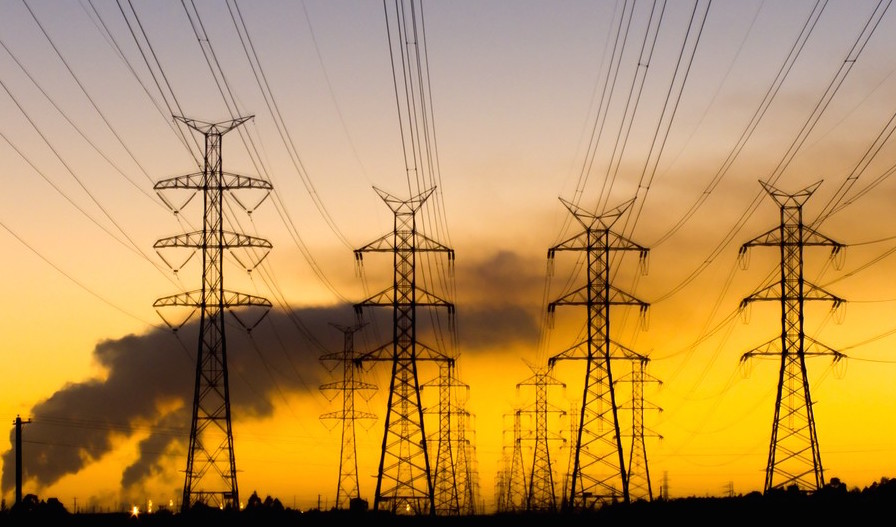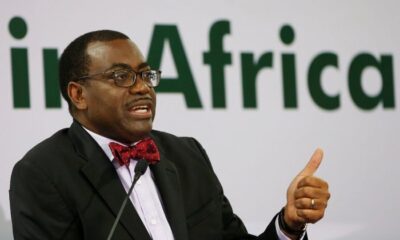Government
Labour Stages Nationwide Protest Over Electricity Tariff
Published
9 years agoon

The organised labour on Monday paralysed business activities of the electricity distribution firms as it led a nationwide protest against the over 45 per cent increase in electricity tariffs, demanding an immediate reversal of the hike.
Leaders and members of the Nigeria Labour Congress and Trade Union Congress were joined in the simultaneous demonstrations in different parts of the country by those in the civil societies and students of tertiary institutions.
According to Punch, the protesters stormed the various offices of the power firms nationwide as early as 8am, chasing out some officials of the companies who had resumed for work.
Armed with placards that bore various inscriptions such as ‘No to increase in electricity tariff’ and ‘No meter, no payment’, the protesters said there was no justification for the hike, with the organised labour warning that if the decision was not rescinded, it could be forced to order an indefinite strike.
In Abuja, the NLC and the TUC led the protesters to the offices of the Abuja Electricity Development Company, the Nigerian Electricity Regulatory Commission and the National Assembly.
The President, TUC, Mr. Bala Kaigama, said the labour movement would continue with the protest against the tariff hike until its reversal.
Similarly, the President of the NLC, Mr. Ayuba Wabba, accused the Minister of Power, Mr. Babatunde Fashola, of conniving with the electricity firms to fleece Nigerians.
The protesters insisted that policies of the government, which created room for Nigerians to be subjected to unjustified charges, would be resisted.
Wabba called on President Muhammadu Buhari to revisit the privation of the power sector as it was marred by corruption, lamenting that the current increase would make it the fifth time the tariffs would go up since the privatisation exercise was concluded.
Wabba, who said that the current tariff increase would not be accepted, added that it was the standard practice all over the world for people to only pay for what they consumed.
He said, “We will not allow a situation where a few will collaborate, including our Minister of Power, Works and Housing, Mr. Babatubde Fashola; we are really disappointed because he did not even respond to all the letters we wrote to him.
“This protest is to tell the Discos and Gencos that we will not allow a situation where they will continue to fleece Nigerians.”
Kaigama, who observed that NERC had been ineffective, called on the government to appoint a substantive board for the commission.
The representative of the civil societies, Mr. Jaiye Gasikya, said the observed deficiencies in the sector only showed that the investors were not ready to add any value to what they met on the ground.
He said that the power firms had refused repeated calls by the organised labour and civil societies to publish their financial statements.
In Lagos, the protesters occupied the head office of the Ikeja Electric in Alausa.
Amidst shouts of ole, ole (meaning thief), they demanded the immediate reversal of the new tariffs, which took effect on February 1. They also asked that prepaid meters should be made available to every consumer free of charge before any tariff hike could be implemented.
The Vice President, NLC, Mr. Amechi Asugwuni, argued that there was no consultation with the consumers before announcing the new tariffs.
“This is unacceptable because it did not take into consideration the welfare of Nigerians,” he said.
In Akure, Ondo State, some protesters marched to the office of the Benin Electricity Distribution Company where they chased out its workers and shut the premises before moving to the Airways and Leo areas of the state capital.
The Chairman of the NLC in the state, Mrs. Bosede Daramola, said there had been no significant improvement in the service delivery by the BEDC and that most consumers were not metered in line with the signed Memorandum of Understanding of November 1, 2013, which stipulated that within 18 months, all consumers must be metered.
A member of the Civil Liberty Organisation and Director of Research, Planning and Statistics, Christian Association of Nigeria, Nelson Fadoju, expressed displeasure at the rise in tariffs, which he said came when the times were already hard for the citizens of the country.
In Osogbo, Osun State, the protesting workers invaded the office of the Ibadan Electricity Distribution Company in the city and locked up officials of the company from around 9am until around noon.
In Port Harcourt, Rivers State, the NLC and TUC members, who picketed the head office of the Port Harcourt Electricity Distribution on Moscow Road, decried what they called arbitrary increase in electricity tariffs.
The state TUC Chairman, Mr. Chika Onuegbu, said the people would not sit and watch the government inflict pains on them through the increase in electricity tariffs.
He lamented that the Federal Government failed to save when the price of crude oil was above $140 per barrel and wondered why the masses should be forced to pay for their inaction.
Also, the state Chairman of the NLC, Beatrice Itubo, described the picketing of the PHED head office as a warning to the electricity distribution company.
Reacting, the Corporate Communication Manager, PHED, Mr. Jonah Iboma, said the power sector had been neglected over the past 50 years, expressing the need for more investment in the sector.
He stated that contrary to the claim that the recent increase in electricity tariffs was up to 45 per cent, the hike was between 12 per cent and 21 per cent.
Members of the labour groups in Ekiti State also shut the office of the Benin Electricity Distribution Company in Ado-Ekiti.
The workers were led by the state Chairman of the TUC, Odunayo Adesoye, and his counterpart in the NLC, Ade Adesanmi.
They rebuffed entreaties by men and officers of the Nigerian Security and Civil Defence Corps not to enter the building.
Other groups that joined in the protest included the Non-Academic Staff Union of the Federal Polytechnic, Ado-Ekiti; Ekiti State Public Service Joint Negotiating Council, the Academic Staff Union of Secondary Schools and the Nigerian Civil Service Union.
In Uyo, Akwa Ibom State, the unions said there was no need to increase the tariffs since the state government had been subsidising the cost of electricity consumed by the people.
In Ogun State, the protest was staged by members of the NLC in conjunction with the civil society groups, including the Committee for the Defence of Human Rights and the Electricity Consumers’ Forum in Abeokuta, Sango-Ota and Sagamu.
But NERC urged the labour unions to exercise restraint in the protest against the hike in electricty tariffs.
It said in a statement by its Head of Public Affairs Department, Dr. Usman Arabi, that the existing electricity tariff order was carried out after a wide consultation with different shades of opinion, and in strict compliance with extant rules and judicial pronouncements.
It stated that the Electric Power Sector Reform Act 2005 empowers any party aggrieved or dissatisfied by the decision of the commission to appeal to it within 60 days from the date of the decision, adding that it was still open to further consultation.
Fashola also described the electricity tariff increase as “a painful pill” and appealed to consumers to “swallow” it.
He, however, said the new tariffs were cheaper than using diesel or petrol-fired generators or inverters.
The Senate President, Bukola Saraki, assured the leadership of the organised labour that the National Assembly would act to ensure that the electricity tariff hike was resolved in the interest of the people.
He stated this while addressing a rally jointly organised by the labour unions and electricity consumers at the National Assembly.
Saraki said, “Even before now, we have observed that this issue of tariff increase and some of the policies were not palatable. We have summoned NERC even before now. We are with you, we will stand with you and ensure that no policy will in any way exist that is not palatable to the Nigerian people.
Is the CEO and Founder of Investors King Limited. He is a seasoned foreign exchange research analyst and a published author on Yahoo Finance, Business Insider, Nasdaq, Entrepreneur.com, Investorplace, and other prominent platforms. With over two decades of experience in global financial markets, Olukoya is well-recognized in the industry.

You may like
-
Nigeria Joins BRICS as Partner Country, Strengthening Global South Cooperation
-
70 Million Poorest of The Poor Nigerians To Get N75,000 From FG
-
Nigeria Surpasses OPEC Quota with 1.51 Million bpd, Targets 2.06 Million in 2025
-
Global Investors Commit $7.6 Billion to Nigeria’s Development at AIF 2024
-
Nigeria-China Trade Strengthened as Grimaldi Introduces Direct Shipping Line
-
Nigeria’s GDP Records 3.46% Growth in Q3 Spurred by Non-Oil Sector













